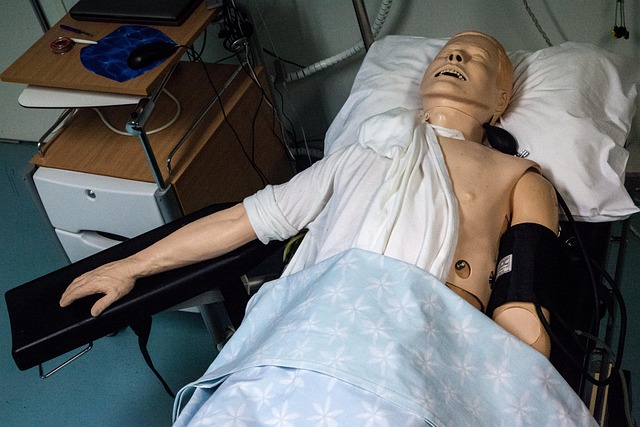The Oregon Child Welfare Court is a specialized entity safeguarding at-risk children from abuse and neglect. It follows meticulous procedures to assess each child's needs, parental capabilities, and potential placements like foster care or adoption, aiming for stable, nurturing environments and family reunifications when safe. Anyone in Oregon can file a petition if they suspect abuse or neglect, leading to investigations and court decisions on temporary/permanent placement and support services. Social workers and attorneys collaborate to protect vulnerable children, with a focus on the child's best interests. The process begins with a DHS petition, followed by investigations, hearings, and evidence review. Both parents and children have rights guaranteed by state law, aiming for safe, stable environments post-court through counseling, therapy, and skill development programs.
“Uncovering the intricacies of Oregon’s Child Welfare Court system is paramount for those involved in protecting vulnerable children. This article serves as a comprehensive guide, demystifying each facet of the process. We explore who can initiate proceedings, highlighting the crucial roles of social workers and attorneys. Understanding the court’s process and hearings is key, alongside recognizing the rights of parents and children. Furthermore, we delve into post-court support, emphasizing available resources for all involved.”
- What is Oregon Child Welfare Court?
- Who Can File a Petition?
- The Role of Social Workers and Attorneys
- Court Process and Hearings
- Rights of Parents and Children
- Post-Court Support and Resources
What is Oregon Child Welfare Court?

The Oregon Child Welfare Court is a specialized legal entity within the state’s judicial system, designed to handle cases involving the well-being and protection of children. Its primary focus is on ensuring the safety, health, and overall welfare of minors who may be at risk due to abuse, neglect, or family circumstances. This court plays a crucial role in navigating complex situations where children need temporary or permanent placement outside their biological families.
In Oregon, child welfare courts follow specific procedures to make informed decisions about a child’s future. They consider various factors, including the child’s needs, the parents’ abilities to care for them, and potential alternatives like foster care or adoption. The goal is to provide a stable and nurturing environment while also working towards reuniting families when it’s safe and in the child’s best interest.
Who Can File a Petition?

In Oregon, any concerned individual or organization can file a petition in child welfare court if they believe a child is at risk of abuse or neglect. This includes professionals like teachers, healthcare providers, and law enforcement officers who may observe suspicious behaviors or circumstances. Social workers and other child protection agencies are also authorized to initiate legal proceedings when necessary. The primary goal is to ensure the safety and well-being of the child by providing appropriate services, temporary or permanent placement, and support.
The petition must include specific allegations, supporting evidence, and details about the child’s situation. It should outline potential harm or neglect and suggest suitable interventions. Once filed, the court will review the petition, determine its validity, and decide whether to proceed with an investigation to gather more information before making any further decisions regarding the child’s future.
The Role of Social Workers and Attorneys

In an Oregon child welfare court, social workers and attorneys play pivotal roles in ensuring the best interests of involved children. Social workers are tasked with conducting comprehensive assessments of families and children, gathering crucial information to inform court decisions. They work closely with parents or guardians, providing support, resources, and guidance to help them meet the requirements set by the court. These professionals also collaborate with various agencies to ensure a child’s safety and well-being, making recommendations for appropriate placements and services.
Attorneys, on the other hand, represent the interests of children in the Oregon child welfare court system. They advocate for the child’s rights and best interests, ensuring that their voices are heard throughout the legal process. Child welfare attorneys work diligently to build strong cases, presenting evidence and testifying in court to protect the child’s future. Their expertise guides the judge’s decisions, ultimately contributing to a positive outcome for the child.
Court Process and Hearings

In Oregon, the child welfare court process begins with a petition filed by the Department of Human Services (DHS) alleging that a child is in need of protection and safety. This initial step triggers an investigation to assess the family’s situation, which may include home visits, interviews, and other evidence-gathering methods. If the case proceeds, a hearing is scheduled where both sides present their cases before a judge.
During hearings, social workers, case managers, and lawyers represent the interests of the child, while the parents or guardians have the opportunity to defend themselves against the allegations. The court reviews all evidence, including medical records, school reports, and witness testimonies, to determine if the child is at risk and in need of placement or services. This process aims to ensure that the best interests of the child are at the forefront, guiding decisions about their future care and well-being.
Rights of Parents and Children

In an Oregon child welfare court, both parents and children have specific rights that are protected under state law. Parents have the right to be present during court proceedings, to confront and cross-examine witnesses, and to present evidence on their own behalf. They can also request legal representation to ensure their interests are fully advocated for. Furthermore, parents are entitled to privacy regarding their personal information and the details of their case.
Children involved in Oregon child welfare court proceedings have the right to be treated with dignity and respect, as well as to participate in decisions that affect their lives. This may include being heard by the court and sharing their wishes and preferences. The court also ensures that children’s best interests are a primary consideration in all decisions made, aiming to provide them with a safe and stable environment for growth and development.
Post-Court Support and Resources

After a case has been heard in Oregon’s child welfare court, various post-court support systems come into play to ensure the well-being and progress of both the child and family involved. These resources are designed to help families maintain stability and make significant improvements in their lives. Many non-profit organizations and government agencies offer specialized services tailored to the unique needs of families navigating the complexities of child welfare.
One key aspect is providing ongoing counseling and therapy for children and parents, addressing any trauma or emotional challenges that may arise from the court process. Additionally, there are programs focused on parenting skills development, job training, and access to educational resources. These post-court interventions aim to empower families with the tools necessary to thrive, ultimately reducing the need for future involvement in Oregon child welfare court proceedings.
